Home Construction Cost Estimator
Building a new home is an exciting yet complex endeavor that requires careful planning and budgeting. Understanding the costs involved in home construction is essential for making informed decisions and ensuring your project stays within budget. This article provides a detailed guide to estimating the costs associated with building a new home, including materials, labor, permits, and additional factors that can influence the overall expense. By having a clear picture of these costs, you can effectively plan your project and avoid unexpected financial surprises.
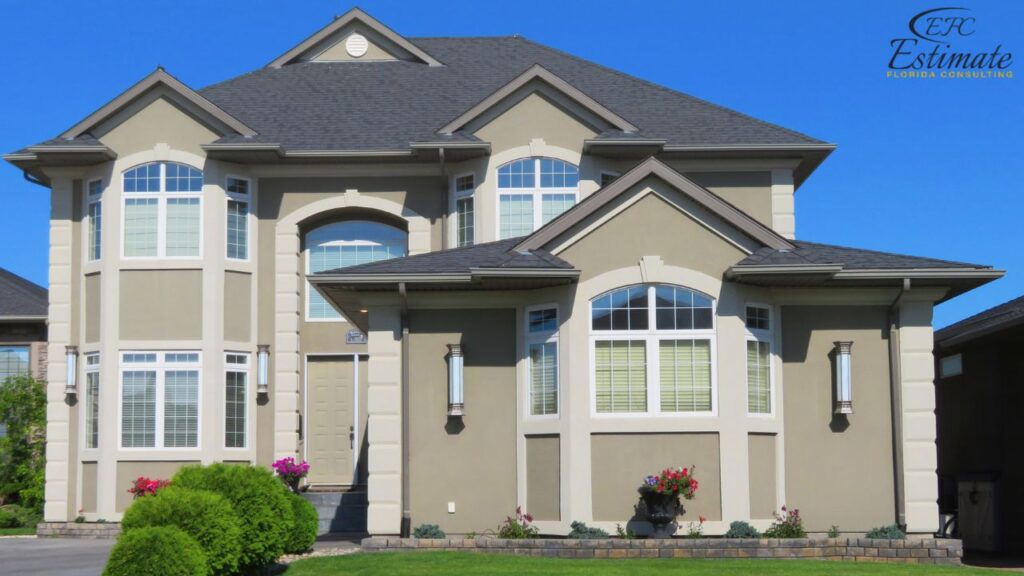
A comprehensive understanding of these costs will help you prioritize spending, select the best materials, and manage labor efficiently, ultimately leading to a successful construction project that meets your expectations and needs.
Factors Influencing Home Construction Costs
Location
The location of your construction project significantly impacts the overall cost. Land prices, local labor rates, and material costs can vary widely depending on the region. Urban areas typically have higher costs compared to rural areas due to higher land prices and labor rates. Additionally, local building codes and regulations can influence costs, as compliance may require specific materials or construction methods. In coastal regions, for example, building codes may necessitate additional measures for hurricane resistance, which can increase costs. Conversely, rural areas might offer lower land prices but could incur higher costs for transporting materials and labor.
Region | Estimated Cost (per sq ft) |
Northeast | $180 – $360 |
Midwest | $120 – $240 |
South | $144 – $300 |
West | $240 – $480 |
Size of the Home
The size of the home is one of the most significant factors affecting the total cost. Larger homes require more materials and labor, leading to higher expenses. It’s essential to consider not only the overall square footage but also the number of floors and the complexity of the layout. Multi-story homes, for example, can incur additional costs due to the need for staircases, additional structural support, and more complex roofing. Additionally, larger homes often require more extensive HVAC systems and more substantial foundations, which further increases costs. Planning for the size and scope of your home carefully can help manage these expenses and align them with your budget.
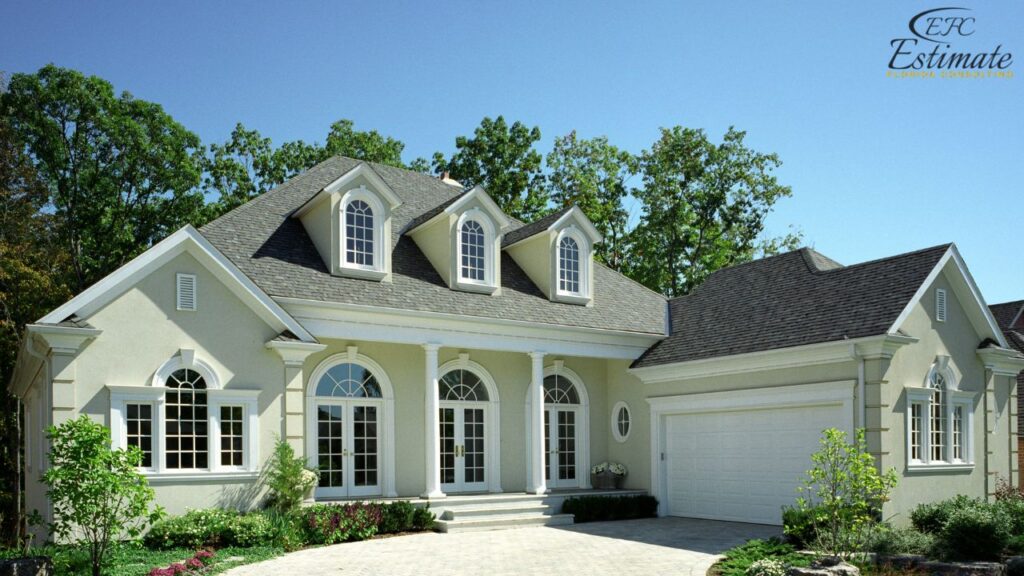
Home Size (sq ft) | Estimated Cost |
1,000 | $120,000 – $360,000 |
2,000 | $240,000 – $720,000 |
3,000 | $360,000 – $1,080,000 |
Type of Materials
The type of materials used in construction significantly impacts the overall cost. High-end materials offer better durability and aesthetic appeal but come at a higher price. It’s essential to balance quality and cost to ensure a long-lasting and beautiful home. For example, using premium hardwood flooring or granite countertops will add to the initial expense but can enhance the home’s value and longevity. Additionally, sustainable materials like bamboo or reclaimed wood may have higher upfront costs but offer environmental benefits and long-term savings in energy efficiency. Selecting the right materials requires careful consideration of both budget and long-term benefits.
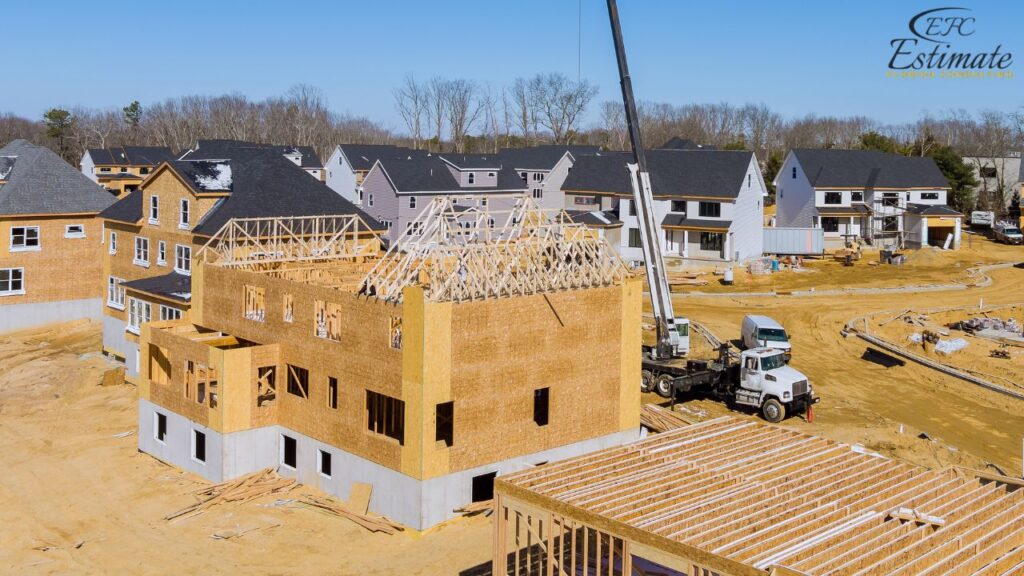
Material Type | Estimated Cost (per sq ft) |
Basic | $120 – $180 |
Mid-Range | $180 – $300 |
High-End | $300 – $480 |
Labor Costs
Labor costs can vary depending on the complexity of the project and the local labor market. Skilled labor, such as electricians and plumbers, may cost more, but they ensure high-quality work that meets local building codes. Labor costs also depend on the project’s timeline, as shorter deadlines may require more workers or overtime pay, increasing overall expenses. It’s crucial to hire qualified professionals who can deliver quality workmanship within the expected timeframe. Additionally, labor shortages in certain areas can drive up costs, so it’s essential to plan and secure reliable contractors early in the process.
Labor Type | Estimated Cost (per hour) |
Basic Labor | $60 – $120 |
Skilled Labor | $120 – $240 |
Specialized Labor | $180 – $360 |
Permits and Fees
Obtaining the necessary permits and paying associated fees is an essential part of the construction process. These costs can vary widely depending on the location and the scope of the project. It’s crucial to factor these into your budget to avoid delays and legal issues. Permits ensure that your construction complies with local building codes and standards, which can prevent costly fines and ensure the safety and durability of your home. In addition to building permits, you may need to obtain zoning permits, environmental permits, and inspections throughout the construction process, each adding to the overall cost.
Permit Type | Estimated Cost |
Building Permit | $1,200 – $3,600 |
Electrical Permit | $600 – $1,800 |
Plumbing Permit | $600 – $1,800 |
Download Template For Home Construction Project Breakdown
- Materials list updated to the zip code
- Fast delivery
- Data base of general contractors and sub-contractors
- Local estimators

Detailed Cost Breakdown
Here’s a detailed cost breakdown for constructing a new home, considering various factors:
Cost Component | Estimated Cost (for 2,000 sq ft) |
Land | $60,000 – $240,000 |
Site Preparation | $6,000 – $24,000 |
Foundation | $12,000 – $48,000 |
Framing | $24,000 – $60,000 |
Exterior Finishes | $24,000 – $72,000 |
Interior Finishes | $48,000 – $144,000 |
Plumbing | $12,000 – $36,000 |
Electrical | $12,000 – $36,000 |
HVAC | $12,000 – $36,000 |
Permits and Fees | $6,000 – $18,000 |
Total | $216,000 – $714,000 |
Examples of Total Construction Costs for Different Scenarios
Basic Home Construction (2,000 sq ft)
- Low-end: $216,000
- High-end: $360,000
This includes basic materials and labor costs. It’s an economical option for those looking to build a simple, functional home without high-end finishes. Basic homes typically feature standard-grade materials and straightforward designs, focusing on functionality and affordability. This option is ideal for first-time homeowners or those looking to maximize their budget without sacrificing essential features.
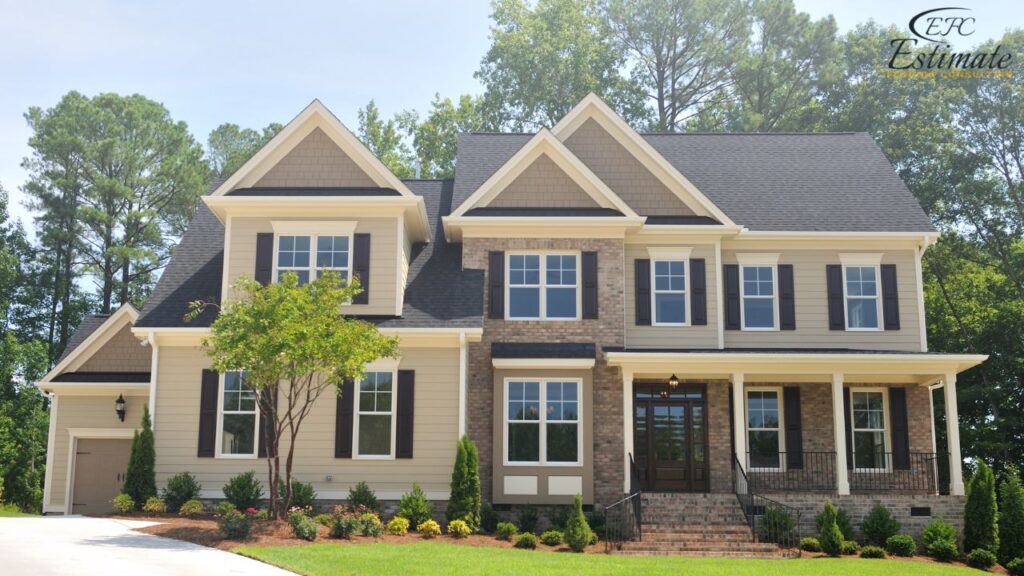
Mid-Range Home Construction with Upgraded Finishes (2,000 sq ft)
- Low-end: $360,000
- High-end: $540,000
This includes mid-range materials and upgraded finishes, providing a balance between cost and quality. This option is ideal for homeowners seeking a more aesthetically pleasing home with better durability and comfort. Mid-range homes often feature upgraded countertops, flooring, and fixtures, enhancing both the appearance and functionality of the home. These homes strike a balance between luxury and practicality, offering a higher standard of living without the extreme costs of high-end options.
High-End Home Construction with Premium Features (2,000 sq ft)
- Low-end: $540,000
- High-end: $720,000
This includes high-end materials, premium features, and top-quality labor. It’s perfect for those who want a luxurious home with all the modern amenities and the highest level of craftsmanship. High-end homes often include custom designs, smart home technologies, and superior materials like marble or custom cabinetry. These homes are built with attention to detail and prioritize luxury, comfort, and aesthetic appeal, making them ideal for those seeking an exceptional living experience.
Additional Costs to Consider
Landscaping
Landscaping is an important aspect of home construction that enhances the curb appeal and usability of the outdoor space. The cost of landscaping can vary based on the complexity of the design and the types of plants and materials used. Basic landscaping might include grass, shrubs, and simple pathways, while more elaborate designs could feature water features, outdoor lighting, and extensive planting beds. Professional landscaping can significantly increase your property’s value and provide a pleasant environment for outdoor activities.
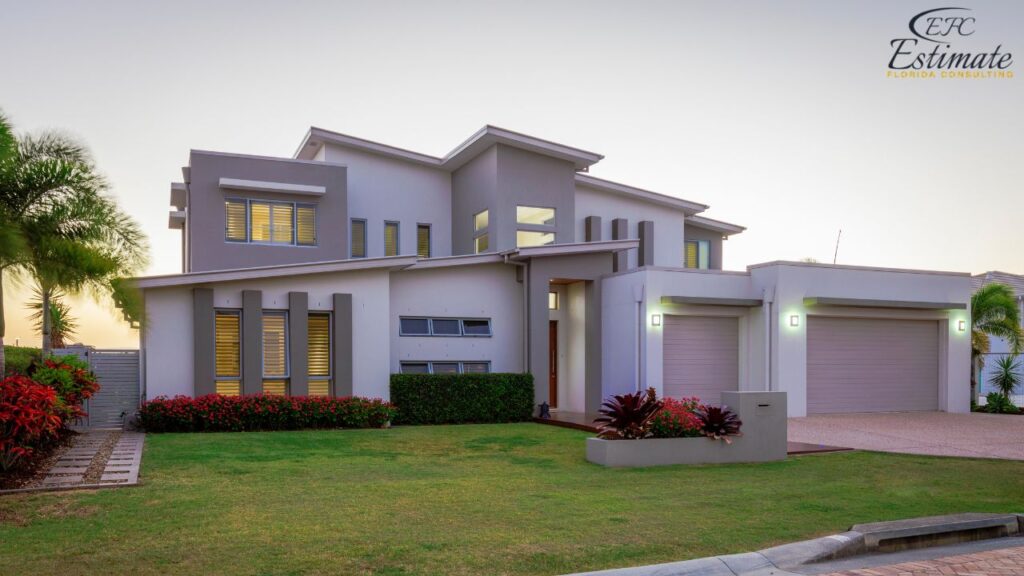
Landscaping Type | Estimated Cost |
Basic Landscaping | $6,000 – $12,000 |
Mid-Range Landscaping | $12,000 – $30,000 |
High-End Landscaping | $30,000 – $60,000 |
Driveways and Walkways
Installing driveways and walkways adds to the functionality and aesthetics of your home. The costs will depend on the materials used and the size of the driveway and walkways. Gravel is the most affordable option, providing a rustic look, while asphalt and concrete offer more durability and a polished appearance. Paved driveways and walkways enhance the home’s curb appeal and provide practical benefits like improved drainage and easy maintenance.
Driveway/Walkway Type | Estimated Cost |
Gravel | $2,400 – $7,200 |
Asphalt | $7,200 – $16,800 |
Concrete | $12,000 – $24,000 |
Decks and Patios
Decks and patios provide additional outdoor living space and can be customized to suit your preferences. The cost will vary based on the materials used and the size of the deck or patio. Basic wood decks offer an affordable option for outdoor seating and entertaining, while composite decks provide durability and low maintenance. Concrete patios are versatile and can be designed with various finishes and textures to enhance outdoor aesthetics.
Deck/Patio Type | Estimated Cost |
Basic Wood Deck | $6,000 – $12,000 |
Composite Deck | $12,000 – $24,000 |
Concrete Patio | $4,800 – $9,600 |
Get 5 New Leads Next 7Days With Our System
- Multi-Family Building
- Hotel Building
- Hospital Building
- Warehouse Building
- High-Rise Building
- Shopping Complex
Conclusion
Building a new home is a significant investment that requires careful planning and budgeting. By understanding the costs involved and considering factors such as location, size, materials, labor, and additional features, you can create a comprehensive budget that ensures your project stays on track. Whether you opt for a basic home or a high-end custom build, detailed cost estimates and professional guidance are crucial for achieving a successful outcome. Proper planning and budgeting will help you avoid financial surprises and ensure that your new home meets your expectations in terms of quality, comfort, and style. Investing in the right materials and skilled labor, along with considering additional features like landscaping and outdoor living spaces, can enhance the value and enjoyment of your new home for years to come.
FAQs
Understanding home construction costs is crucial because it allows you to plan and budget effectively for your new home. It helps in making informed decisions about materials, size, and features while ensuring the project stays within financial limits.
Several factors impact construction costs, including:
- Location: Urban areas generally have higher costs due to land prices and labor rates, while rural areas may have lower land costs but higher transportation expenses.
- Size of the Home: Larger homes require more materials and labor, increasing overall costs.
- Type of Materials: Basic, mid-range, or high-end materials affect both initial construction costs and long-term maintenance.
- Labor Costs: Skilled labor costs vary and can significantly impact project expenses.
- Permits and Fees: Costs for building permits, zoning permits, and inspections are necessary and vary by location.
Construction costs per square foot vary by region:
- Northeast: $180 – $360
- Midwest: $120 – $240
- South: $144 – $300
- West: $240 – $480 These estimates reflect differences in labor rates, material costs, and regional building regulations.
A detailed cost breakdown typically includes:
- Land and Site Preparation: Costs for purchasing land and preparing it for construction.
- Foundation and Framing: Expenses for laying the foundation and framing the structure.
- Exterior and Interior Finishes: Costs for exterior siding, roofing, and interior finishes like flooring and cabinetry.
- Systems Installation: Plumbing, electrical, and HVAC installation costs.
- Permits and Fees: Costs associated with obtaining necessary permits and paying fees.
The choice of materials—basic, mid-range, or high-end—affects costs per square foot:
- Basic: $120 – $180 per sq ft
- Mid-Range: $180 – $300 per sq ft
- High-End: $300 – $480 per sq ft These materials vary in quality, durability, and aesthetic appeal, influencing both initial construction expenses and long-term maintenance costs.
Additional costs may include:
- Landscaping: Costs for designing and planting outdoor spaces.
- Driveways and Walkways: Expenses for paving or landscaping these areas.
- Decks and Patios: Costs for constructing outdoor living spaces.
- Permits and Fees: Fees for various permits, inspections, and compliance with building codes.
Process To Get Home Construction Cost Estimate Report
Here I am going to share some steps to get your home construction cost estimate report.
-
You need to send your plan to us.
You can send us your plan on info@estimatorflorida.com
-
You receive a quote for your project.
Before starting your project, we send you a quote for your service. That quote will have detailed information about your project. Here you will get information about the size, difficulty, complexity and bid date when determining pricing.
-
Get Estimate Report
Our team will takeoff and estimate your project. When we deliver you’ll receive a PDF and an Excel file of your estimate. We can also offer construction lead generation services for the jobs you’d like to pursue further.

